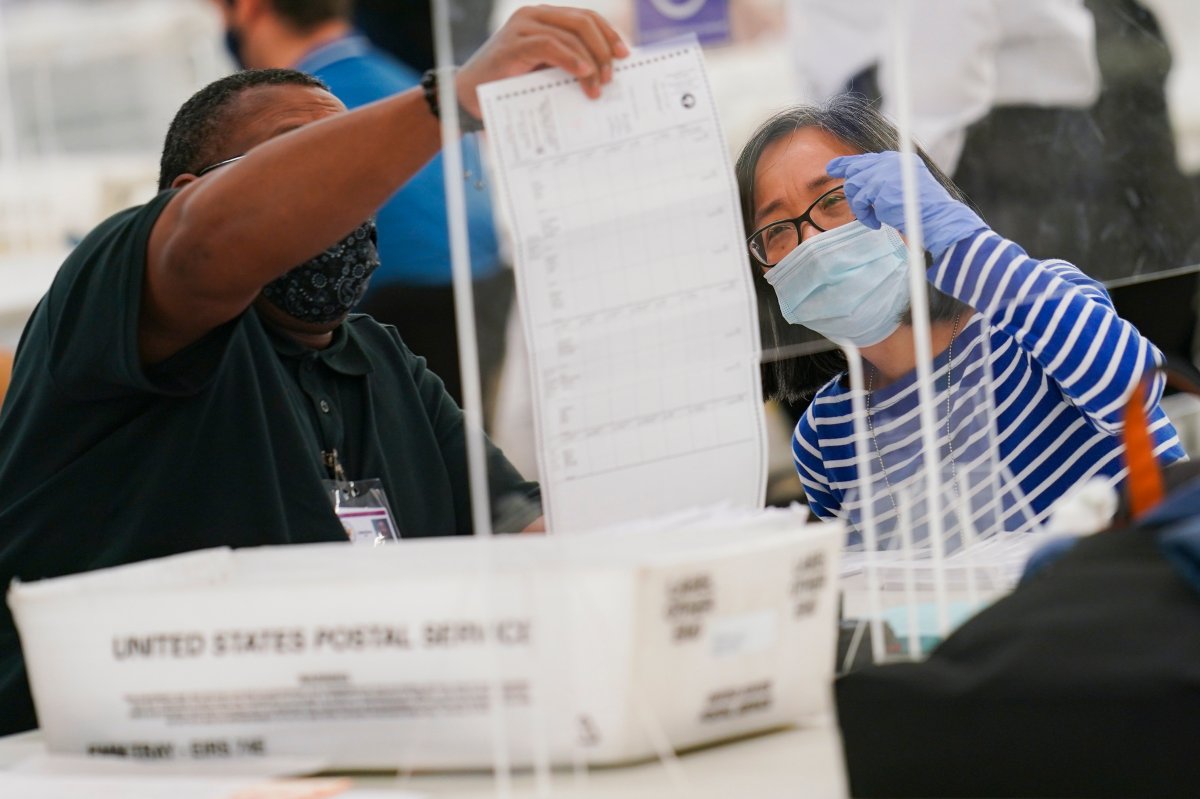Preparing to have an election during the coronavirus pandemic is a dynamic challenge for Elections Calgary.

But the body that oversees and conducts Calgary’s general election has a plan on how to make sure Calgarians can vote while mitigating the risk of COVID-19.
“If I was to take a look at our current approach, obviously, that would mean that voters would be wearing masks in the voting stations, they would be required to distance, to use hand sanitizer,” Andrew Brouwer, deputy city clerk with Elections Calgary, said Wednesday.
“We would also be looking at ensuring that the voting stations themselves are regularly sanitized.”
Elections Calgary is planning to limit the number of people at a voting station, increase the number of voting stations and increase the amount of space a voting station takes up.
The city is working with its voting tabulator to make sure voters can bring their own pens to reduce common touchpoints.
The elections oversight body is working to expand advance voting hours.
Lessons from other jurisdictions that have gone to the polls during the pandemic are being closely considered.
“As each of these other jurisdictions go through the process, we’ll learn from them, and we will certainly adopt our plans and processes in response,” Brouwer told Global News.
On Feb. 12, in-person voting for Newfoundland and Labrador was cancelled following spikes in COVID-19 cases, driven by the new variants in the province.
Previous elections in British Columbia, Saskatchewan and New Brunswick earlier in the pandemic were able to accommodate in-person voting.
McKenzie Kibler, press secretary for Alberta Municipal Affairs Minister Ric McIver, said the province has been monitoring other elections in the country since the beginning of the pandemic as part of its commitment to safe municipal elections in October.
“By learning best practices, we have developed educational materials and virtual training,” Kibler said in a statement.
“We’re continuing to work with municipalities to prevent the spread of COVID-19, for instance, by allowing debit and credit card payments for nomination deposits instead of physical payments.”
Newfoundland and Labrador expanded special ballots, also known as mail-in voting, because of the surge in COVID-19 cases.
Brouwer said expanding special ballots is something Elections Calgary has been working with municipal affairs on to develop contingencies if needed.

Mail-in votes are normally issued to people who are unable to vote in advance or on election day, which is Oct. 18.
“For example, if a person does have COVID-19, that would be one of those reasons why they could ask for a special ballot,” Brouwer said.
“We continue to consider recommendations from municipalities and are looking at options like expanding the use of special ballots (e.g. mail-in ballots),” Kibler said. “However, no decisions have yet been made.”
According to the federal vaccine rollout plan, the Canadian government expects to receive enough vaccines “to immunize everyone for whom vaccines are approved and recommended” by September 2021.
But the trajectory of the pandemic with new variants remains an unknown variable.
“We have to continually monitor and adjust our plans as required,” Brouwer said.
- Canadian man dies during Texas Ironman event. His widow wants answers as to why
- Invasive strep: ‘Don’t wait’ to seek care, N.S. woman warns on long road to recovery
- ‘Sciatica was gone’: hospital performs robot-assisted spinal surgery in Canadian first
- ‘Super lice’ are becoming more resistant to chemical shampoos. What to use instead








Comments